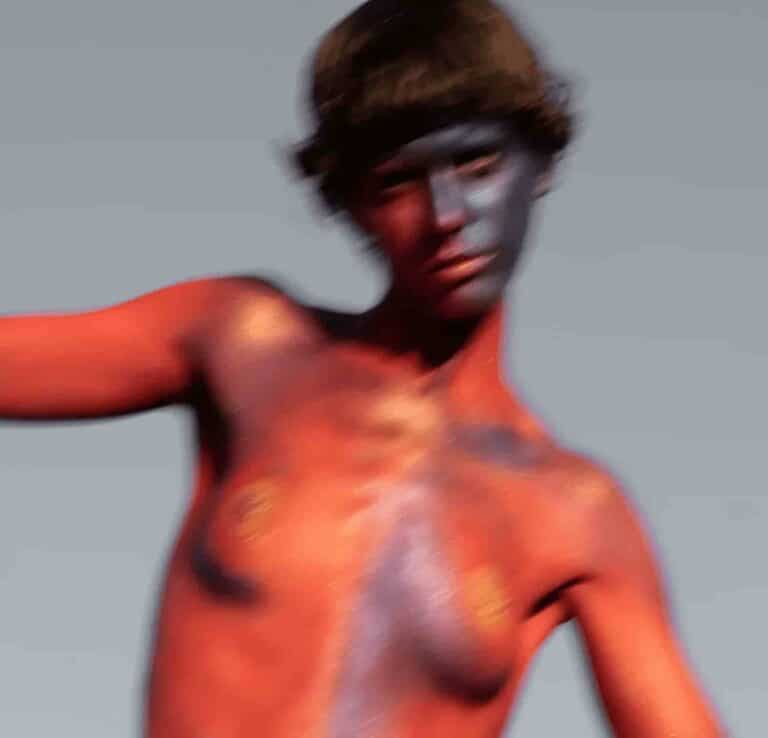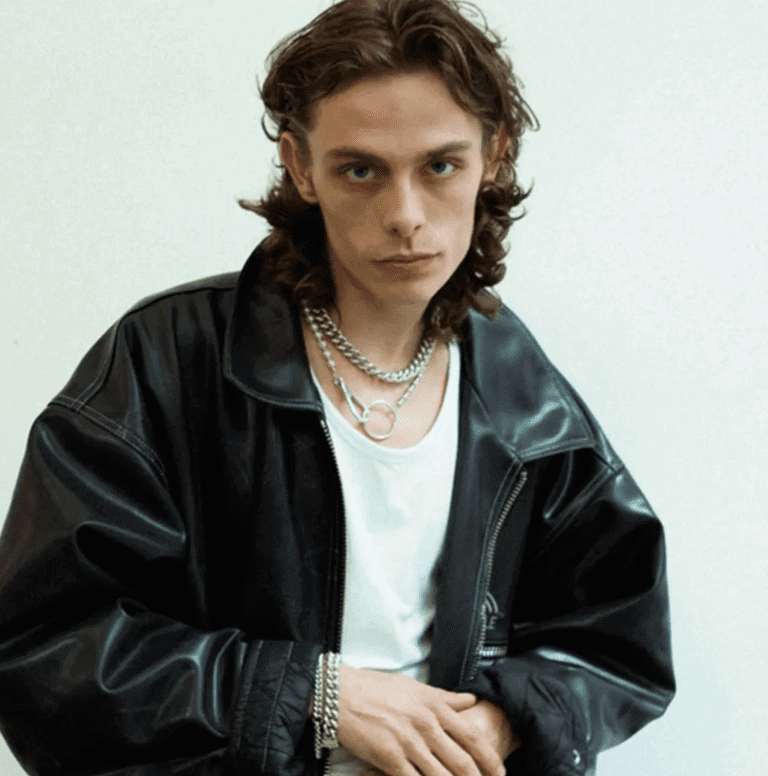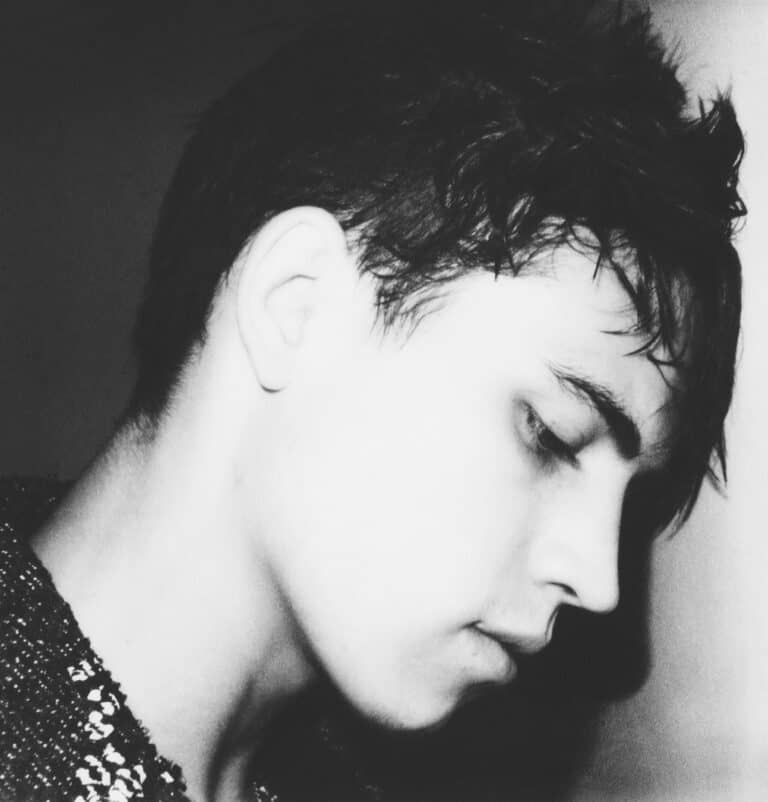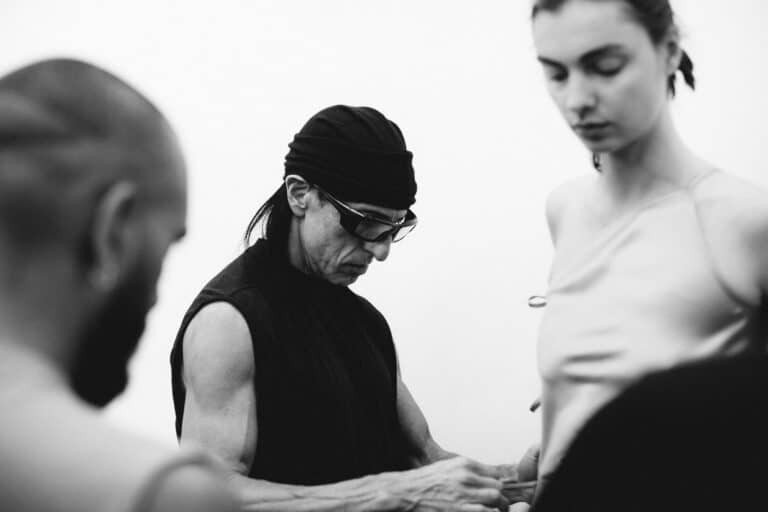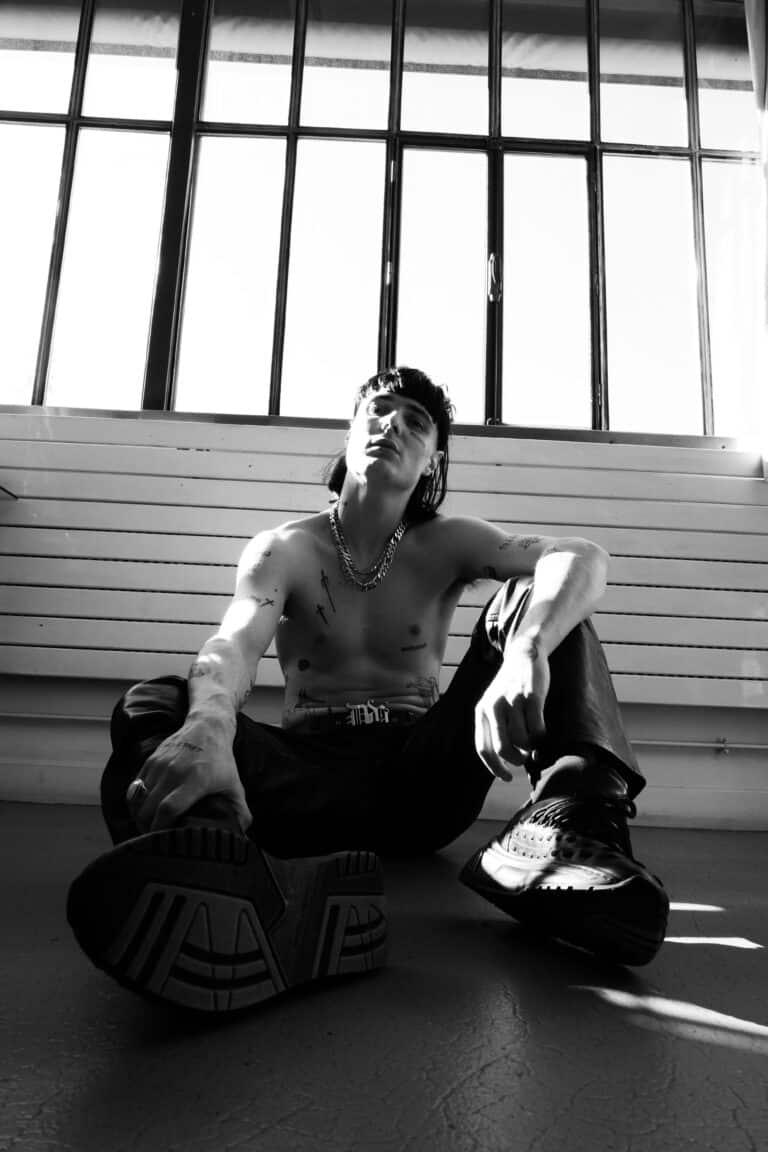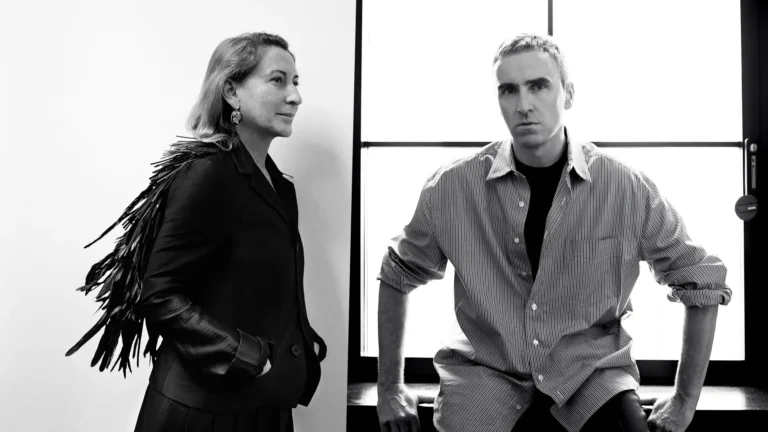Celine conjures the spirit of escapism under the watchful eye of director Hedi Slimane
Read time 4 minute
Courtesy of Celine.
Hedi Slimane’s visionary touch transforms Celine menswear. A masterclass in tailoring, theatrics, and homage to history.
Under the meticulous guidance of Hedi Slimane, Celine has expanded its menswear repertoire with a renewed sense of purpose and creativity. Known for his razor-sharp aesthetic and boundary-pushing vision, Slimane continues to redefine the identity of the French fashion house. For the Spring-Summer 2020 menswear campaign, he conceptualized and captured the “Portrait of a Performer” collection, blending bold theatrics with gender-defying garments to create a stunning narrative of modern masculinity and style.
The runway for the Spring-Summer 2020 show was as much a performance space as it was a stage for Slimane’s artistry. As the event began, the audience was greeted by a cube adorned with red velvet curtains, glowing mysteriously in the dim light. This cinematic opening evoked the surrealism of a David Lynch film, setting the tone for an unforgettable evening. The hauntingly cool soundtrack from NYC art-rock band Bodega amplified the drama as the curtain rose to unveil the first ensemble: a dazzling pinstriped three-piece suit with crystals glimmering under the spotlight.
Slimane’s ability to merge music, theatrics, and fashion into a cohesive narrative was on full display during this collection. The punk-inspired soundtrack combined with his impeccable tailoring showcased his capacity to balance edge with elegance. From razor-sharp cuts to glittering embellishments, every detail of the show reflected Slimane’s mastery of his craft and his passion for pushing the boundaries of traditional menswear.

Courtesy of Celine.
A common misconception about Slimane is that he aims to uproot the traditions of the fashion houses he leads. However, the reality is far more nuanced. Slimane approaches each brand with a profound respect for its heritage. At Celine, he honors its history while bringing his unique sensibilities to the forefront. This duality—of reverence and reinvention—allows him to evolve the brand without erasing its roots, a philosophy that was palpable in this collection.
The Spring-Summer 2020 menswear collection paid homage to the 1970s, an era Slimane often draws inspiration from. Gone were the slim-fit drainpipe trousers he popularized during his tenure at Dior Homme. In their place were impeccably tailored silhouettes that flared slightly at the knee, striking a balance between retro chic and contemporary sophistication. High waistlines, polished ties, and relaxed precision in tailoring demonstrated Slimane’s ability to modernize nostalgic styles.
Beyond the garments, Slimane’s attention to detail elevated the collection’s narrative. Slogans emblazoned on t-shirts and accessories added layers of meaning to the designs. Phrases like “Yesterday was better,” “I am still waiting on my Hollywood ending,” and “There is no irony here” offered a mix of introspection, humor, and cultural commentary. These witty touches added a playful edge to the otherwise polished collection, reflecting Slimane’s multifaceted creative voice.
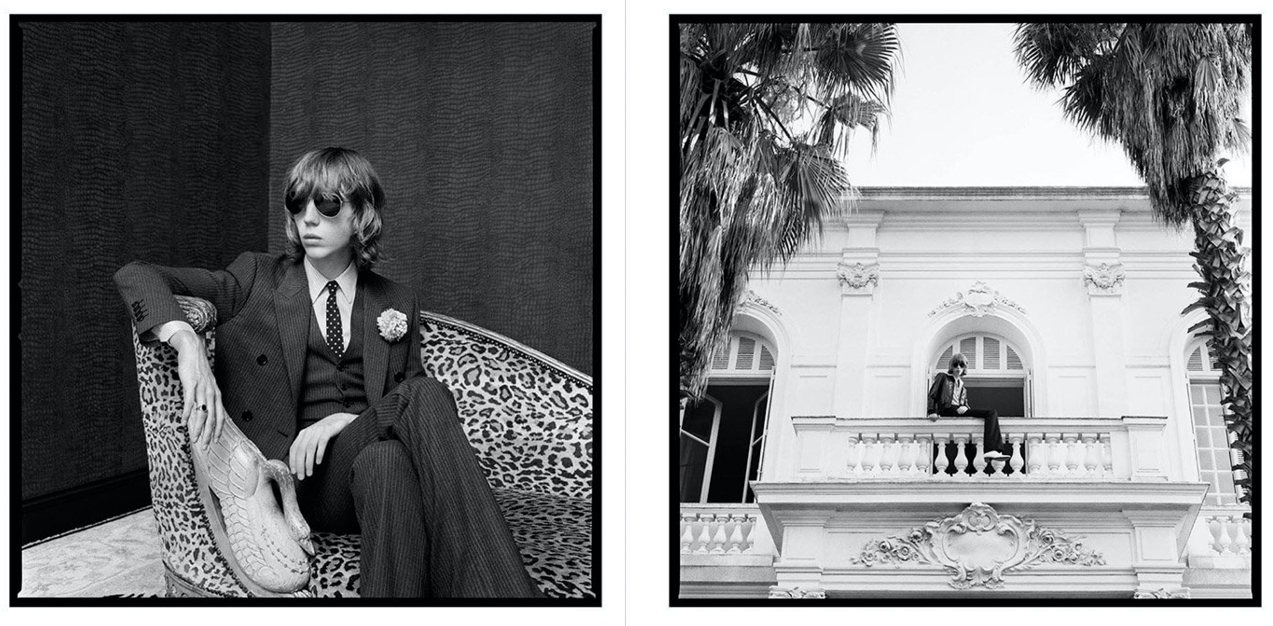
Slimane also embraced romance and whimsy in unexpected ways. Sequins and crystals adorned blazer lapels, lending a touch of glamour to the collection. Single earrings styled with many of the looks added a modern twist, while corsages featuring vibrant red roses provided a poetic flourish. These details showcased Slimane’s ability to weave romance into his otherwise edgy and structured designs.
The collection revealed a designer who is unafraid to evolve at his own pace. Slimane has often stated that his vision for Celine is a work in progress, and this collection reflected that philosophy. Rather than chasing fleeting trends or creating instant social media sensations, Slimane opts for a quieter, more deliberate approach that rewards careful observation and appreciation.
The show’s ambiance was another testament to Slimane’s mastery of storytelling. From the velvet-trimmed cube to the evocative soundtrack, every element was carefully curated to draw the audience into his world. These theatrical flourishes elevated the collection beyond fashion, transforming it into a sensory experience that lingered long after the show ended.

Courtesy of Celine.
Slimane’s work at Celine is also a reflection of his broader philosophy on fashion. He believes in creating pieces that stand the test of time, both in terms of craftsmanship and cultural relevance. By combining elements of the past with contemporary aesthetics, Slimane is crafting a legacy that feels both timeless and uniquely his own.
Despite his reputation as a trailblazer, Slimane’s work is deeply rooted in tradition. His designs often pay tribute to the golden eras of fashion, while simultaneously pushing the industry forward. This duality is part of what makes his vision so compelling and impactful.
The Spring-Summer 2020 menswear collection also showcased Slimane’s willingness to challenge norms and expectations. By incorporating gender-neutral elements and unconventional silhouettes, he demonstrated his commitment to expanding the boundaries of menswear. This inclusivity is a reflection of the evolving cultural landscape and Slimane’s role as a designer who understands the importance of representation.
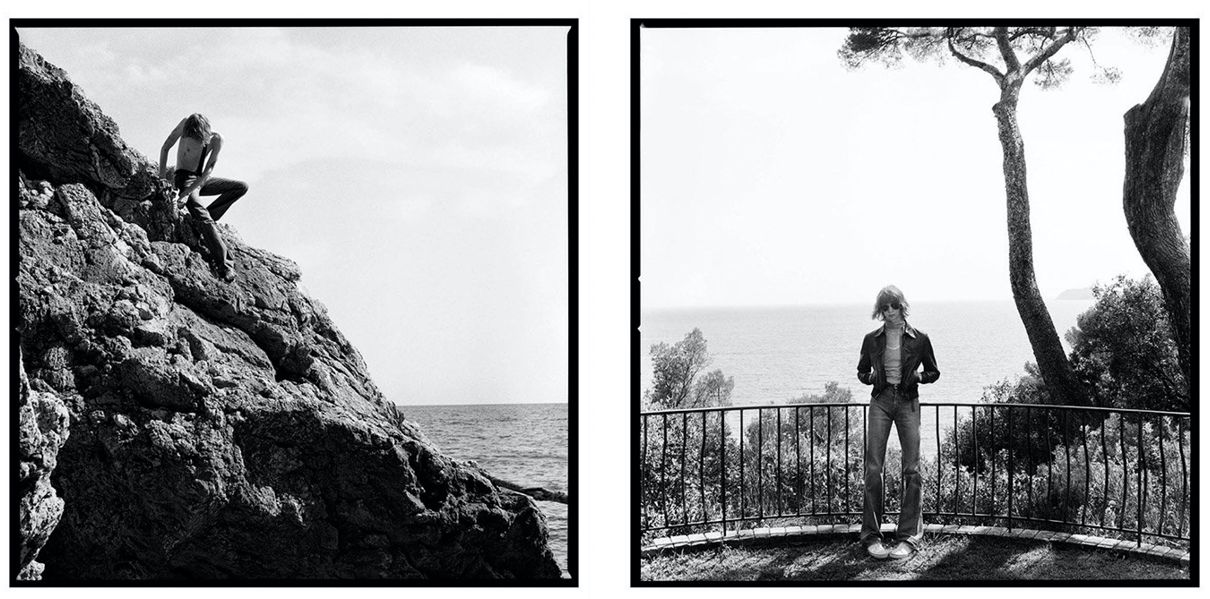
Courtesy of Celine.
Slimane’s ability to blend precision with spontaneity was evident throughout the collection. Every piece was meticulously crafted, yet the overall effect was one of effortless cool. This balance is a hallmark of Slimane’s work and a testament to his skill as a designer.
The slogans featured in the collection offered a glimpse into Slimane’s sense of humor and his perspective on the world. Lines like “There is no irony here” served as both a declaration and a challenge, inviting viewers to engage with his work on a deeper level.
Slimane’s decision to incorporate elements of surrealism and romance into the collection added an emotional depth that resonated with audiences. The red rose corsages, in particular, were a poignant reminder of the beauty and fragility of life—a theme that feels especially relevant in today’s world.
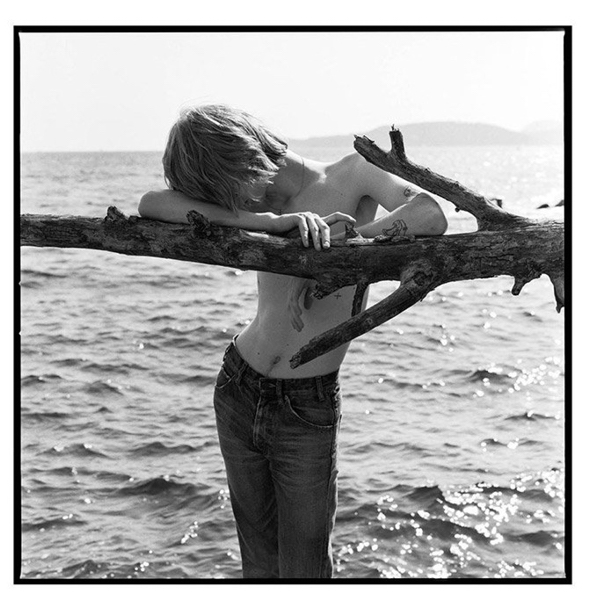
Courtesy of Celine.
As Slimane continues to evolve his vision for Celine, it’s clear that he is shaping the future of menswear in profound ways. His work is not just about creating beautiful clothes; it’s about telling stories, challenging conventions, and inspiring change.
The Spring-Summer 2020 menswear collection is a testament to Slimane’s talent and vision. By blending tradition with innovation, he has created a body of work that feels both timeless and forward-thinking. This collection is not just a moment in fashion—it’s a milestone in Slimane’s career and a reflection of his enduring impact on the industry.
Hedi Slimane’s work at Celine is a reminder that fashion is about more than just aesthetics. It’s about storytelling, emotion, and connection. Through his designs, Slimane invites us to see the world through his eyes—a world where tradition meets innovation, and where the past and present collide to create something truly extraordinary.
Text by
Taylan Finley
Fashion by
Celine
Posted
February 26, 2020
Text by
Taylan Finley
Fashion by
Celine
August 9, 2018
Related
by admin
by Kelly Barnes
by Adrian Hendrix
by Kylar Ashton
Dissenting from reality: Meet Mua Sabu Suzuki and Photographer Mika Kailes
Read time 4 minutes
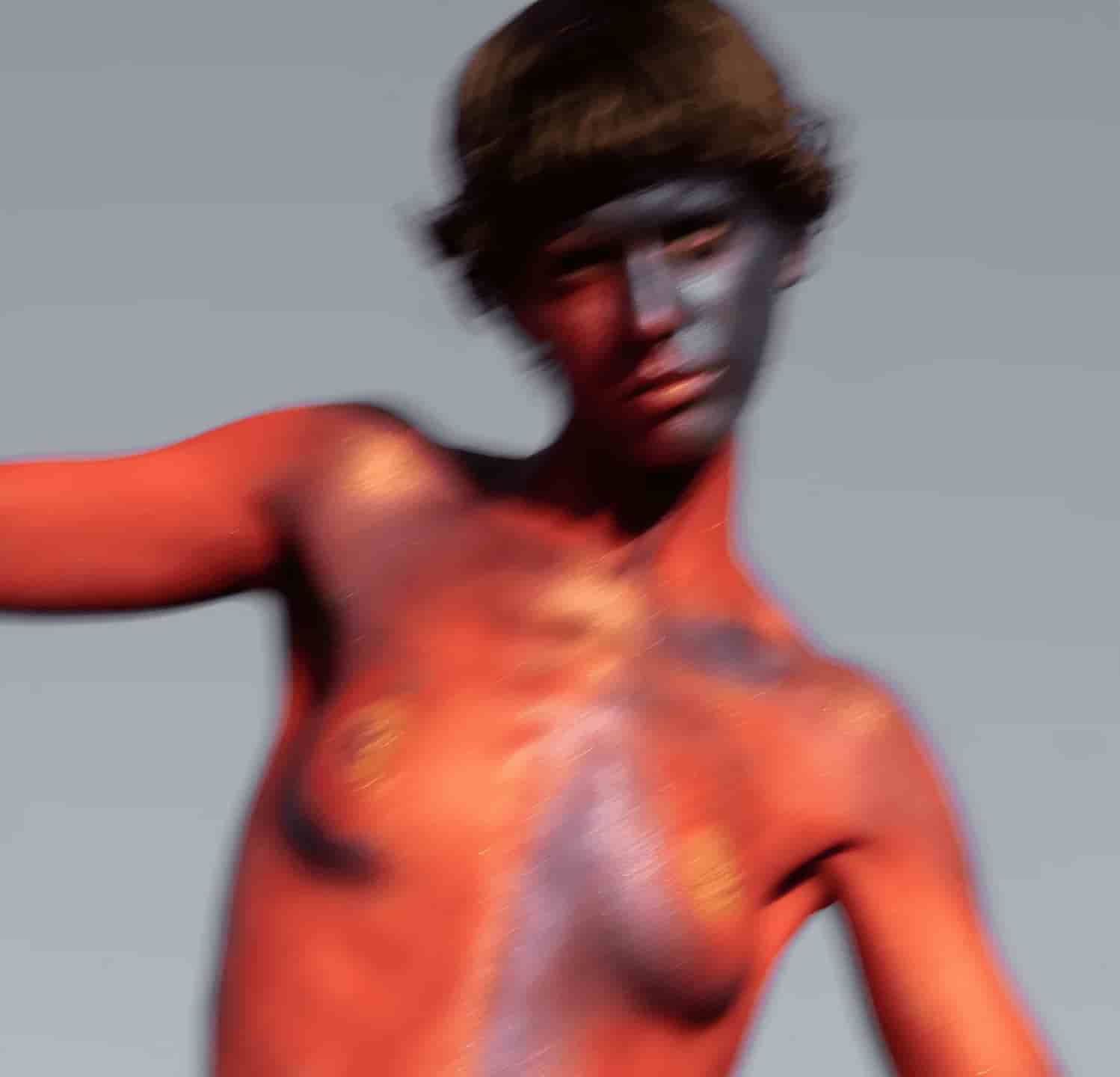
Text by
Kaden Mason
Photography by
Mika Kailes
Posted
March 30, 2024
Photography by Mika Kailes.
Make-up is more than a beauty ritual; it’s a reclamation of identity, a rebellion against the predetermined, and a medium for expression.
In a world that is often preoccupied with conventional beauty standards, make-up has become more than just a tool for enhancing appearance—it has evolved into a form of rebellion, a medium for storytelling, and a catalyst for self-discovery. For 21-year-old make-up artist Sabu Suzuki, the transformative power of make-up transcends its surface-level appeal. Swedish-born and London-based, Suzuki’s artistry is bold, intentional, and disruptive, challenging societal norms and redefining what it means to be beautiful in an era of conformity.
Suzuki’s recent collaboration with photographer Mika Kailes is a testament to his unique approach to the craft. Together, they have created a series of striking images that capture the fluidity of identity and the interplay between light and texture. Each look tells a story that resonates on both a personal and universal level. For Sabu, make-up is not just about painting faces—it’s about bringing inner truths to life and celebrating individuality in its most unapologetic form.
But Sabu’s journey hasn’t been without challenges. From navigating a competitive industry to overcoming personal struggles, he has faced moments of doubt and uncertainty. Yet, through it all, he has remained steadfast in his belief that make-up is a powerful medium of expression. “Make-up,” he says, “is not about hiding who you are—it’s about revealing who you want to be.”
As we sit down for this conversation, Sabu reflects on his beginnings, inspirations, and the philosophies that drive his work. With a laugh as vibrant as his creations, he welcomes us into his world—a space where art meets identity, and where every brushstroke is an act of self-empowerment.

Photography by Mika Kailes.
Kaden: Can you recall the first time you did someone’s make-up? What was the experience like?
Sabu Suzuki: Oh, absolutely! It’s seared into my memory—partly because it was such a disaster but also because it was a pivotal moment for me. I remember using this drugstore foundation that was completely the wrong shade and piling it on like I was frosting a cake. The end result wasn’t pretty, but there was something magical about the process. It was the first time I felt the thrill of transforming someone’s appearance, even if I didn’t quite know what I was doing. I think those early attempts are crucial—they teach you to embrace imperfection and to keep experimenting until you find your voice. Looking back, I realize that the heart of what I do now was already there in those clumsy moments: the desire to tell a story and create something meaningful.
Kaden: Why do you believe make-up is important in today’s world? It feels like people have very polarized opinions about it.
Sabu Suzuki: That’s such a loaded question, but I love it because it gets to the heart of why I do what I do. Make-up is important because it’s one of the few art forms that’s accessible to almost everyone. You don’t need a gallery or a platform to make an impact—you just need a face and some imagination. At the same time, it’s also a deeply personal thing. For some, it’s a way to express joy or creativity; for others, it’s a shield or a source of confidence. What’s fascinating to me is how polarizing it can be. Some people see it as empowering, while others see it as superficial. I think both perspectives miss the point. Make-up isn’t about vanity or conformity—it’s about choice. It’s about taking control of how you present yourself to the world, and in that sense, it’s incredibly powerful.

Photography by Mika Kailes.
Kaden: When did you know that make-up was going to be more than just a hobby for you?
Sabu Suzuki: That realization hit me like a ton of bricks during one of the hardest periods of my life. I was going through a lot emotionally and felt completely disconnected from myself. One day, almost on a whim, I started playing with make-up. It wasn’t for a job or a look—I was just painting my face to see if I could create something that felt alive. That process became my therapy. It helped me reconnect with parts of myself that I thought were lost. Over time, I started to see make-up not just as a coping mechanism but as a calling. It became clear to me that this was what I was meant to do—not just for myself but for others, too.
Kaden: How do you view make-up as an art form? A lot of people still see it as something trivial or surface-level.
Sabu Suzuki: I completely disagree with that mindset. Make-up is one of the most dynamic art forms because it’s alive. Think about it: you’re working on a canvas that breathes, emotes, and changes with every passing moment. That’s what makes it so exciting—and also so challenging. You’re not just creating something to look at; you’re creating something that interacts with the world. For me, make-up is about transformation, not just in a physical sense but on an emotional and spiritual level, too. It’s about taking what’s inside and bringing it to the surface in a way that feels authentic and powerful.

Photography by Mika Kailes.
Kaden: Your work feels deeply personal. How do you navigate creating something that resonates with your own story but also connects with others?
Sabu Suzuki: That’s a balance I’m always trying to strike. My work is undeniably rooted in my personal experiences—my struggles, my identity, and even my joys. But what I’ve learned is that the more specific you get, the more universal it becomes. People see their own stories in your honesty. When I create a look, I’m not just thinking about what it means to me; I’m thinking about how someone else might interpret it. It’s like planting a seed and letting others grow their own meaning from it. That’s the beauty of art—it becomes a shared experience.
Kaden: Have you ever felt pressure to conform to certain beauty trends or standards, especially in the industry?
Sabu Suzuki: Oh, absolutely. The beauty industry is full of unspoken rules and trends that you’re “supposed” to follow. But honestly, I’ve never been interested in playing by those rules. Early in my career, I felt that pressure to create looks that were “trendy” or “marketable,” but it didn’t feel authentic to me. I realized I’d rather be known for doing something unique—even if it’s polarizing—than for creating work that looks like everyone else’s. The way I see it, trends come and go, but authenticity lasts forever.
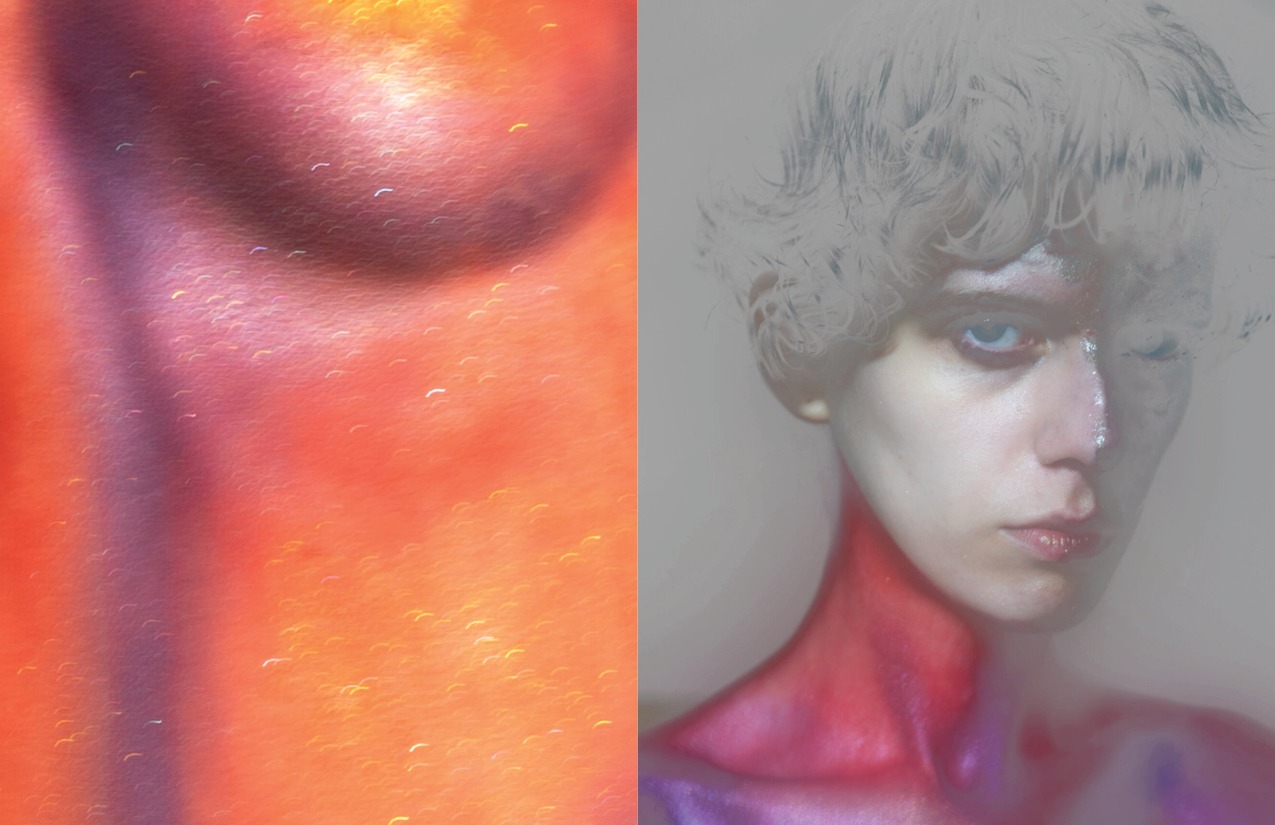
Photography by Mika Kailes.
Kaden: What inspires you when you’re working on a new look or concept? Do you draw from specific sources?
Sabu Suzuki: Inspiration is everywhere if you’re open to it. I get ideas from the most random things—like the way light hits a cracked mirror or the texture of peeling paint on a wall. Music plays a huge role, too. Sometimes a single song can inspire an entire look. And of course, people inspire me—how they move, how they express themselves, how they carry their stories in their faces. I think the most exciting part of being an artist is that you never run out of things to be inspired by. The world is a giant mood board if you pay attention.
Kaden: What advice would you give to someone who’s just starting out as a make-up artist but feels overwhelmed by the competition?
Sabu Suzuki: First of all, it’s okay to feel overwhelmed—that’s normal. But don’t let it paralyze you. The best advice I can give is to focus on finding your own voice. It’s tempting to look at what others are doing and try to emulate that, but the only way to stand out is to be true to yourself. Experiment, make mistakes, and don’t be afraid to create something that feels “wrong” by industry standards. Some of the most groundbreaking work comes from people who dared to do things differently. And remember, your journey is yours alone—don’t compare your chapter one to someone else’s chapter ten.
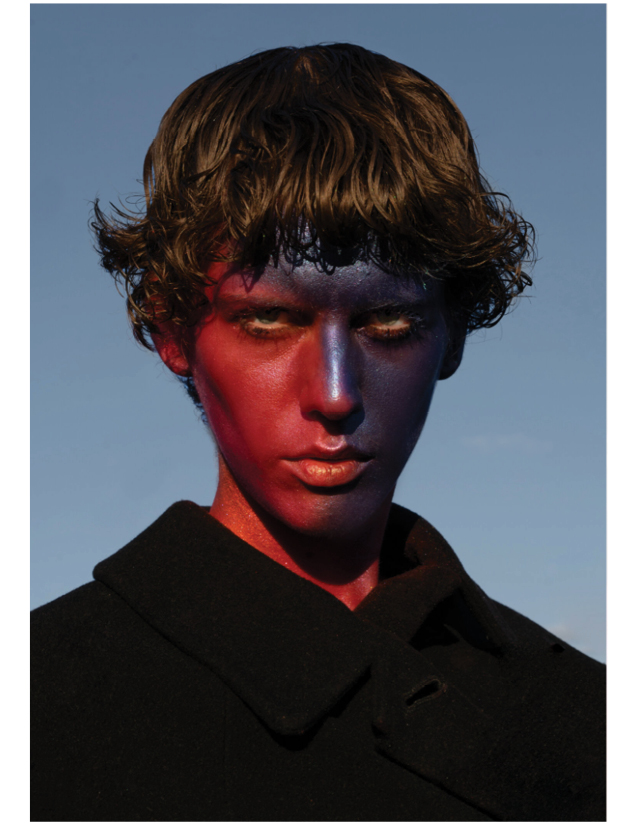
Photography by Mika Kailes.
As our conversation winds down, it’s clear that Sabu Suzuki is not just a make-up artist—he’s a visionary. His work challenges conventional ideas about beauty, art, and identity, inviting us to see make-up as a tool for empowerment and self-expression. Through his bold creations, he encourages us to embrace imperfection and celebrate individuality.
Sabu’s journey is a reminder that art can emerge from the most unexpected places. Whether it’s inspired by a moment of personal struggle or the mundane patterns of everyday life, his work proves that beauty is everywhere if you’re willing to look for it. His collaboration with Mika Kailes is a shining example of how make-up can transcend its traditional boundaries, becoming a medium for storytelling and connection.
But perhaps the most profound takeaway from Sabu’s story is his unwavering belief in the power of choice. “Make-up,” he says, “is not about conforming to someone else’s standards. It’s about creating your own rules and living by them. It’s about taking control of your narrative and saying, ‘This is who I am.’”
Text by
Kaden Mason
Posted
March 30, 2024
Text by
Kaden Mason
Photography by
Mika Kailes
March 25, 2025
Related
by Kelly Barnes
by DREEDN
by Andrekka Lanier


